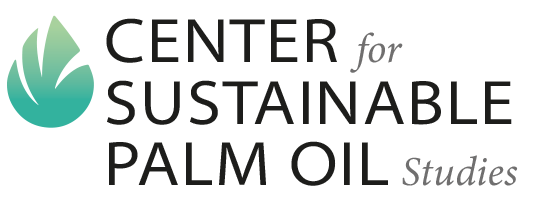
The COVID-19 pandemic has demonstrated that the current global architecture contains grave flaws, weaknesses, and vulnerabilities; this global architecture, moreover, lacks the resilience necessary to address to complex and interconnected worldwide challenges. A significant dynamic in this interconnectedness are the relationships between major powers, such as the European Union, and their ability to develop robust partnerships with countries and emerging markets in the global south.
Containing and Combatting Deforestation: Palm Oil Boycott
In this context, Europe’s relationships with Asia and Asian markets were already experiencing difficulties in the context of a dispute over palm oil, among other issues. This dispute has disrupted trade relations, amidst calls for large-scale boycotts. The seminal calculation here had been as follows: Palm oil is an edible food product, which has been identified as a prime force behind tropical deforestation. Given, in turn, the role of deforestation in driving climate change, a ban on that production which accelerates deforestation seemed sensible.
It may additionally be noted that recent reports by, among others, the World Wildlife Fund have connected deforestation to increased risk of pandemic. Based on such calculations, the EU instituted a de facto ban on palm oil for biodiesel last year. However, while the environmental calculations involved are legitimate, and worthy of our attention, there is no scientific or expert consensus as to the efficacy of the EU ‘solution’. It may in fact be said that the EU’s approach bolsters protectionism at a time of global economic volatility.
Moreover, the EU approach may perversely undermine environmental efforts to slow, stop, and reverse deforestation. Scientists at the University of Bath have demonstrated how banning palm oil may drive up rates of deforestation by encouraging farmers, and especially vulnerable smallholder farmers, to respond to the change in demand by cultivating other edible oils. These include alternatives like rapeseed and sunflower oil which, while also debile, nevertheless use more fertiliser, land, and water, often at the expense of virginal forest. The ban thus afflicts the environment it intended to protect.
Scientific experts at the University of Oxford and the International Union for the Conservation of Nature have corroborated these conclusions, backed up by years of rigorous research.
Sustainability Case Study
The European Union’s approach—the aforementioned boycott on palm oil—also overlooked important milestones in producer countries such as Malaysia. By 2019’s close, a full 67% of Malaysian palm oil plantations, many of which are operated by smallholder farmers, became certified by the Malaysia Sustainable Palm Oil (MSPO) scheme. In fairness, the MSPO standard is not verified by the extent of scientific literature available to back up the claims of better-known international sustainable certification standards such as the Roundtable on Sustainable Palm Oil (RSPO).
But the data which is emerging is promising. Further, it should be underscored that while RSPO is a wholly optional mechanism aimed at sizeable corporations, the MSPO scheme is mandatory, enforceable, and designed to be accessible to the smallholder farmers who account for some two-fifths of palm oil production. MSPO is therefore a nationally-mandated sustainability standard backed up by legal force—a world first. Naturally, there is no perfect scheme, and there is room for improvement, but it is worth returning to its relevance to smallholder farmers, who are otherwise not considered by many conversations on sustainability. Absent them, however, there of course cannot be sustainability.
MSPO has had success. Over the previous three years, that country’s deforestation rate has progressively slowed, according to information from the US-based World Resources Institute’s Global Forest Watch project. According to the Global Forest Watch project, “recent gains in curbing forest loss” can be attributed “to recent moratoriums on new clearing for palm oil”—and “to tougher law enforcement to stop fires.” On the backs of this ambitious and successful standard, Malaysia aims to ensure all production of palm oil is certified sustainable by the end of this year.
New European Perspectives on Palm Oil Production
A reasonable expectation for producer countries and scientists would be for major markets such as the European Union to acknowledge, aid, and encourage the MSPO scheme. As stated at the outset, it is precisely vulnerabilities in relationships between major powers and globally southern countries that has been revealed by the COVID-19 pandemic and that contributes to inefficacies in responses to crises. The case of palm oil is therefore instructive.
Based on the initial palm oil boycott, it appeared certain that the European Union would not assist Malaysia in worthwhile aims of slowing and ending deforestation and encouraging environmental consciousness in production. Fortunately, however, recent events suggest an about-face in European Union approaches to palm oil. In two recent reports, the Union has indicated its policymakers are willing to consider new directions. In a report by the Directorate-General for External Policies at the European Parliament, the EU was counselled not to reduce palm oil imports.
Instead, it was argued that it “would be more effective and less costly” if producer countries like Malaysia were encouraged to focus more on tackling deforestation. Similarly, a second report, this by the European Parliament’s Committee on Agriculture and Rural Affairs, called for “inclusive partnerships” with countries like Malaysia to stop deforestation and develop a fully EU-backed certification standard. This second report also underscored the urgent need to criminalise deforestation through broad national legal mechanisms. These reports suggest a European realisation that RSPO is inadequate.
They also demonstrate that the EU is increasingly aware of smallholder farmers, and concerned to support them instead of sideline them. Given these fortuitous developments, the time has come to establish a coordinated, shared approach to addressing deforestation beyond what has been previously attempted. Such an approach would be valuable also because the shift in EU proposals, though tacking closer to scientific evidence, indicate a need for greater clarity on the question of implementation. The end remains the same, and there is new openness to improving the means. But the means themselves remain unclear. This is an opportune moment to provide thorough ongoing clarification.
One reason for this confusion has to do with the unawareness in European Parliamentary Committees of Malaysia’s commitment to and progress in realising sustainable palm oil production practices. The Directorate General’s report claimed inaccurately that in Malaysia under 33% “of palm oil production is certified,” which suggests that the EU’s information is outdated, the EU lacks robust communications mechanisms with the relevant Malaysian authorities, and fails to understand the implementation and function of the MSPO scheme. Increased engagement between the EU and Malaysia, on diplomatic, scientific, and economic levels, would be of indirect and direct benefit here.
Incentivising Environmental and Economic Initiatives
It is important to provide both incentives and penalties in order to achieve environmental and economic benefits to the European Union and Malaysia. There are several environmental and economic initiatives that can be examined further which will promote greater engagement on shared environmental objectives for mutual benefit.
One significant and worthwhile initiative to consider is the development of a multinational scientific body that can address, evaluate, and compare various sustainability standards, including RSPO and MSPO. The body would be a collection of international experts on palm oil, functioning in an advisory capacity, ideally with familiarity with Malaysia’s palm oil industry. This advisory body would follow and inform the relevant agencies and authorities, with rigorously vetted research, of progress in sustainability standards. All necessary data would be rendered accessible and provable.
The advantages for the EU and Malaysia should be clear. The latter would be able to share its sustainability standards and progress therein with the European Union, which in turn would be able to scientifically evaluate and verify the MSPO certification standard.
A second initiative to consider is establishing dialogue with the EU’s Environment Committee and the EU’s Directorate General and Committee on International Trade concerning mutual action in palm oil production, sustainability, and shared certification standards. This will address the need for greater engagement between major markets and globally southern producer nations, such that together they can cooperate to achieve mutually agreed-upon and desired environmental objectives.
Finally, both the EU and Malaysia should consider how to support smallholder farmers, whose prosperity is necessary to heading off deforestation. For many of these farmers, sustainability certification can be onerous, especially when they intend to scale up operations.
Penalising Deforestation
Complementing these incentives, I suggest penalties as well, because by pushing from two directions, it is more likely to achieve environmental and economic benefits for both the European Union and Malaysia. Instead of, however, a generalised ban on measures that contribute to deforestation, the EU and Malaysia should come up with shared sustainability schemes, which are themselves reasonable, practicable, and sustainable, and thereafter penalise companies and farmers that are in violation of those standards.
Such an approach would accelerate the development of a sustainability standard that could be exported to other markets, while providing a clear and undeniable benefit to smallholder farmers and other producers: The reward for compliance is access to EU markets.
Conclusion
Such cooperation would empower the European Union to encourage environmental consciousness in policies and practices across the world—by incentivising compliance with laudable environmental goals and dis-incentivising noncompliance. There would be significant economic benefit as well. The EU consumer would have access to efficient and affordable edible oils from rapidly growing emerging markets, while in turn the producer would have access to the EU’s uniquely large market.







